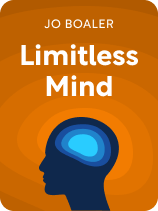

This article is an excerpt from the Shortform book guide to "Limitless Mind" by Jo Boaler. Shortform has the world's best summaries and analyses of books you should be reading.
Like this article? Sign up for a free trial here.
What’s conceptual knowledge? Is it superior to the rote learning method?
In Limitless Mind, math educator Jo Boaler shares the latest science about how people learn. Based on the research, she argues that flexible approaches to learning and teaching are more productive than older, more rigid practices.
Continue reading to compare the two approaches of rote learning and conceptual knowledge in education.
Rote Learning vs. Conceptual Knowledge
It’s important that students be encouraged to approach learning and problem-solving from multiple directions, not just the techniques and interpretations drilled into them by repeating what’s in textbooks. To do this, our education system should place a higher value on conceptual knowledge in education than the rote learning method.
Boaler describes conceptual knowledge as the understanding of how individual ideas relate to each other. The advantage of conceptual understanding is that, once it’s achieved, it takes up less memory space in the brain than lists of memorized facts. Furthermore, understanding how different ideas relate to one another creates new avenues for problem-solving and builds a framework for the mind to incorporate even more knowledge. For example, if you were to memorize a separate list of driving directions to every place you regularly visit—the grocery store, the post office, a friend’s house—that would be a hundred times more taxing than simply building a mental map of your city and how its major roads intersect.
Yet, that’s exactly how we teach many subjects, from science and math to history and grammar. Students are made to memorize rules for reading, writing, and mathematics without being taught why the rules work. We’re teaching students to think in the hardest way possible. Boaler suggests that we focus on teaching students the core concepts underlying rules and facts so that students can reach beyond memorization and apply those core concepts in creative, flexible ways. Once they understand core concepts, they free up the mental space squandered by memorization and can progress even further.
| Memorization vs. Memory Memorization may not be as useless as Boaler seems to imply—it simply fails as a teaching tool when it’s used as the only step instead of the first step of the process. In Make It Stick, Peter Brown, Henry Roediger, and Mark McDaniel go into detail about how the brain stores skills and information in long-term memory for later retrieval. The first element, of course, is your initial exposure to what you want to learn, which can take the form of memorizing facts or the steps to a process. Doing this places the information in your short-term memory, which the authors equate to messy notes scribbled in a notebook. The next crucial step is consolidation, a process that can take hours or days as your brain connects its short-term notes to other ideas you’ve already stored in your long-term memory. During consolidation, what started off as memorized data becomes refined and clarified as you gain a better sense of its meaning. The final step is to create retrieval cues that will let you access your new knowledge in the future. This can be done by applying it in more and more challenging situations. Brown, Roediger, and McDaniel go on to explain that, every time you retrieve the information, your brain makes it easier to retrieve it again in the future. In A Mind for Numbers, Barbara Oakley offers a variety of suggestions for how to build different retrieval cues for information. These involve associating what you learn with sensory impressions, physical movements, narrative stories, or spatial impressions. Each of these memory techniques incorporates different regions of the brain, which you’ll remember that Boaler recommends you do at the start of the knowledge-forming process as well. |

———End of Preview———
Like what you just read? Read the rest of the world's best book summary and analysis of Jo Boaler's "Limitless Mind" at Shortform.
Here's what you'll find in our full Limitless Mind summary:
- Why everything you thought you knew about natural abilities is wrong
- Why attitude is more important than aptitude when it comes to learning
- How to apply the science to boost your learning






